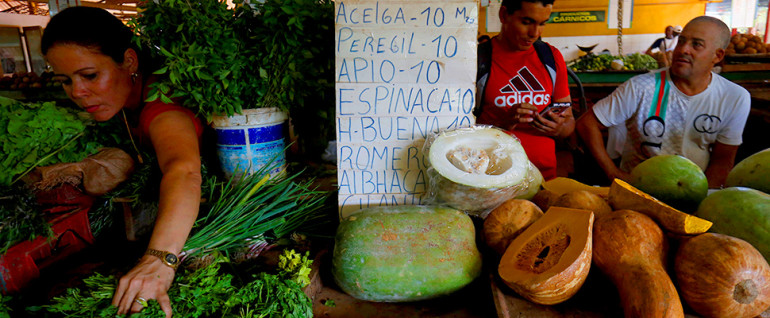Sponsored Listings:
Communist-run Cuba on Tuesday imposed sweeping price controls on all state and private businesses as it battles a deepening economic crisis and mounting U.S. sanctions.
Resolutions published in the official gazette banned all retail and wholesale price increases except for products imported and distributed by the state where already-set profit margins cannot be increased.
“In effect, they have suspended what there is of a market,” a Cuban economist said, asking not to be identified due to restrictions on talking to foreign journalists.
While state-run companies dominate the economy, reforms in recent years have led to a growing private sector of cooperatives, farmers, small businesses and self-employed individuals who, for example, work in the skilled trades or drive taxis, and in general operate on a market basis.
Resolution 302 of the Finances and Prices Ministry lists all actors in what is called the non-state sector, saying that they “cannot increase current prices and tariffs of products and services.”
Cuban President Miguel Diaz-Canel announced earlier this month that the government had adopted a series of emergency measures to fight economic stagnation and dwindling foreign currency earnings that began in 2015 as the economy of key ally Venezuela imploded, and which have been aggravated by a series of new U.S. sanctions.
The measures included increased wages and pensions for more than 2 million state employees, amounting to more than 8 billion pesos annually, or close to 13 percent of this year’s budget.
Diaz-Canel said other measures still to be announced included price controls and policies aimed at stimulating local production to meet increased consumer demand without sparking inflation.
Cafeteria owner Manuel Rodriguez, like other small business owners, said he had no problem with the controls if the state and informal sector complied, which he doubted.
“I agree and would comply with regulating prices, but domestic products are scarce in stores and we must resort to imported ones that are more expensive,” Rodriguez said.
Economist Andrew Zimbalist, a Cuba expert at Smith College in the United States, said, “Such measures are usually okay for short periods of time, but if they stay in a place they begin to create serious distortions in the economy.”
Pavel Vidal, a former Cuban central bank economist who teaches at Colombia’s Universidad Javeriana Cali, took a similar view.
“The more they control prices in formal markets, the more inflation and instability there will be in informal markets and the less incentive the productive sector has,” he said.
Source: latinamericanpost.com










